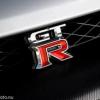Loud Front Brake Squeek Attkd Rotors
Announcements
-
Similar Content
-
Latest Posts
-
Very nice - I also have a 92 GTST and hardly see any others around these days
-
When I need something else to edit, I use Movavi. A friend who does video editing on a daily basis recommended me) it's an easy video cutter to use for beginners
-
I need to edit some videos for work but I'm not good at all this. Which video editor can you recommend?
-
I think you're really missing the point. The spec is just the minimum spec that the fuel has to meet. The additive packages can, and do, go above that minimum if the fuel brand feels they need/want to. And so you get BP Ultimate or Shell Ultra (or whatever they call it) making promises to clean your engine better than the standard stuff....simply because they do actually put better additive packages in there. They do not waste special sauce on the plebian fuel if they can avoid it. I didn't say "energy density". I just said "density". That's right, the specific gravity (if you want to use a really shit old imperial description for mass per unit volume). The density being higher indicates a number of things, from reduces oxygen content, to increased numbers of double bonds or cyclic components. That then just happens to flow on to the calorific value on a volume basis being correspondingly higher. The calorific value on a mass basis barely changes, because almost all hydrocarbon materials have a very similar CV per kg. But whatever - the end result is that you do get a bit more energy per litre, which helps to offset some of the sting of the massive price bump over 91. I can go you one better than "I used to work at a fuel station". I had uni lecturers who worked at the Pt Stanvac refinery (at the time they were lecturing, as industry specialist lecturers) who were quite candid about the business. And granted, that was 30+ years ago, and you might note that I have stated above that I think the industry has since collected together near the bottom (quite like ISPs, when you think about it). Oh, did I mention that I am quite literally a combustion engineer? I'm designing (well, actually, trying to avoid designing and trying to make the junior engineer do it) a heavy fuel oil firing system for a cement plant in fricking Iraq, this week. Last week it was natural gas fired this-that. The week before it was LPG fired anode furnaces for a copper smelter (well, the burners for them, not the actual furnaces, which are just big dumb steel). I'm kinda all over fuels.
-
Well my freshly rebuilt RB25DET Neo went bang 1000kms in, completely fried big end bearing in cylinder 1 so bad my engine seized. No knocking or oil pressure issue prior to this happening, all happened within less than a second. Had Nitto oil pump, 8L baffled sump, head drain, oil restrictors, the lot put in to prevent me spinning a bearing like i did to need the rebuild. Mechanic that looked after the works has no idea what caused it. Reckoned it may have been bearing clearance wrong in cylinder 1 we have no idea. Machinist who did the work reckoned it was something on the mechanic. Anyway thats between them, i had no part in it, just paid the money Curiosity question, does the oil system on RB’s go sump > oil pump > filter > around engine? If so, if you had a leak on an oil filter relocation plate, say sump > oil pump > filter > LEAK > around engine would this cause a low oil pressure reading if the sensors was before the filter? TIA
-



Recommended Posts
Create an account or sign in to comment
You need to be a member in order to leave a comment
Create an account
Sign up for a new account in our community. It's easy!
Register a new accountSign in
Already have an account? Sign in here.
Sign In Now